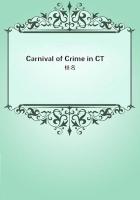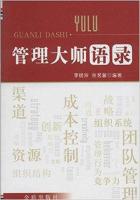He dashed down the stairs and into the street. The people were making a great uproar in front of the hotel, exploding bombs, firing muskets in the air, sending up rockets; and rapidly crossing the outskirts of the crowd, he passed into Carewe Street, unnoticed. Here the detonations were not so deafening, though the little steamboat at the wharf was contributing to the confusion with all in her power, screeching simultaneously approval of the celebration and her last signals of departure.
At the first corner Tom had no more than left the sidewalk when he came within a foot of being ridden down by two horsemen who rode at so des- perate a gallop that (the sound of their hoof-beats being lost in the uproar from Main Street) they were upon him before he was aware of them.
He leaped back with an angry shout to know who they were that they rode so wildly. At the same time a sharp explosion at the foot of the street sent a red flare over the scene, a flash, gone with such incredible swiftness into renewed darkness that he saw the flying horsemen almost as equestrian statues illumined by a flicker of lightning, but he saw them with the same distinctness that lightning gives, and recognized the foremost as Robert Carewe. And in the instant of that recognition, Tom knew what had happened to Crailey Gray, for he saw the truth in the ghastly face of his enemy.
Carewe rode stiffly, like a man frozen upon his horse, and his face was like that of a frozen man; his eyes glassy and not fixed upon his course, so that it was a deathly thing to see. Once, long ago, Tom had seen a man riding for his life, and he wore this same look. The animal bounded and swerved under Vanrevel's enemy in the mad rush down the street, but he sat rigid, bolt upright in the saddle, his face set to that look of coldness.
The second rider was old Nelson, who rode with body crouched forward, his eyeballs like shining porcelain set in ebony, and his arm like a flail, cruelly lashing his own horse and his master's with a heavy whip. "De steamboat!" be shouted, hoarsely, bringing down the lash on one and then on the other. "De steamboat, de steamboat--f o' God's sake, honey, de steamboat!"
They swept into Main Street, Nelson leaning far across to the other's bridle, and turning both horses toward the river, but before they had made the corner, Tom Vanrevel was running with all the speed that was in him toward his enemy's house. The one block between him and that forbidden ground seemed to him miles long, and he felt that he was running as a man in a dream, and, at the highest pitch of agonized exertion, covering no space, but only working the air in one place, like a treadmill. All that was in his mind, heart, and soul was to reach Crailey. He had known by the revelation of Carewe's face in what case he would find his friend; but as he ran he put the knowledge from him with a great shudder, and resolved upon incredulity in spite of his certainty. All he let himself feel was the need to run, to run until he found Crailey, who was somewhere in the darkness of the trees about the long, low house on the corner. When he reached the bordering hedge, he did not stay for gate or path, but, with a loud shout, hurled himself half over, half through, the hedge, like a bolt from a catapult.
Lights shone from only one room in the house, the library; but as he ran toward the porch a candle flickered in the hall, and there came the sound of a voice weeping with terror.
At that he called more desperately upon his incredulity to aid him, for the voice was Mrs. Tan-berry's. If it had been any other than she, who sobbed so hopelessly--she who was always steady and strong! If he could, he would have stopped to pray, now, before he faced her and the truth; but his flying feet carried him on.
"Who is it?" she gasped, brokenly, from the hall. "Mamie? Have you brought him?"
"It's I," he cried, as he plunged through the doorway. "It's Vanrevel."
Mrs. Tanberry set the iron candlestick down upon the table with a crash.















